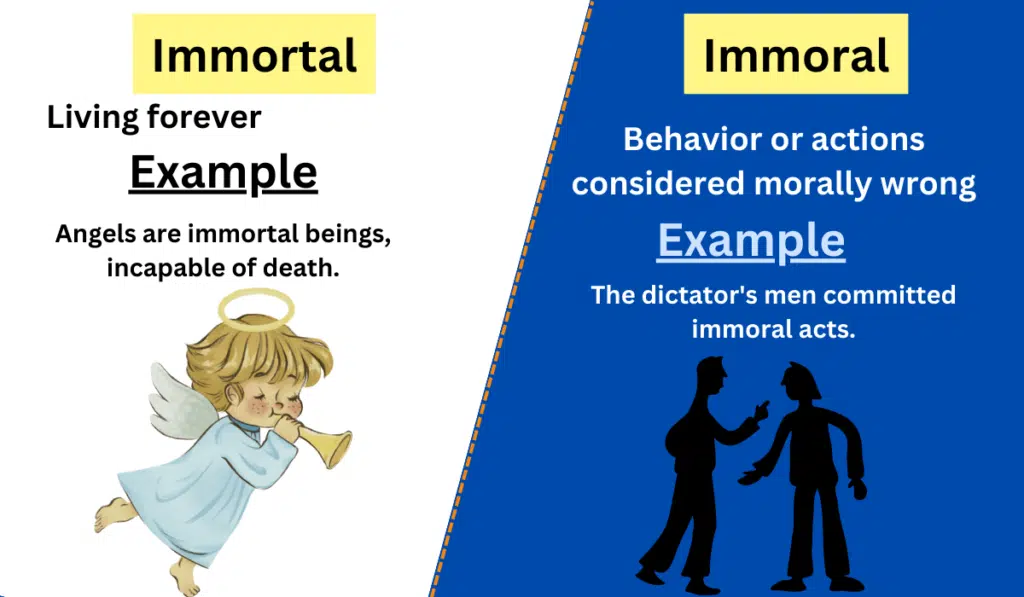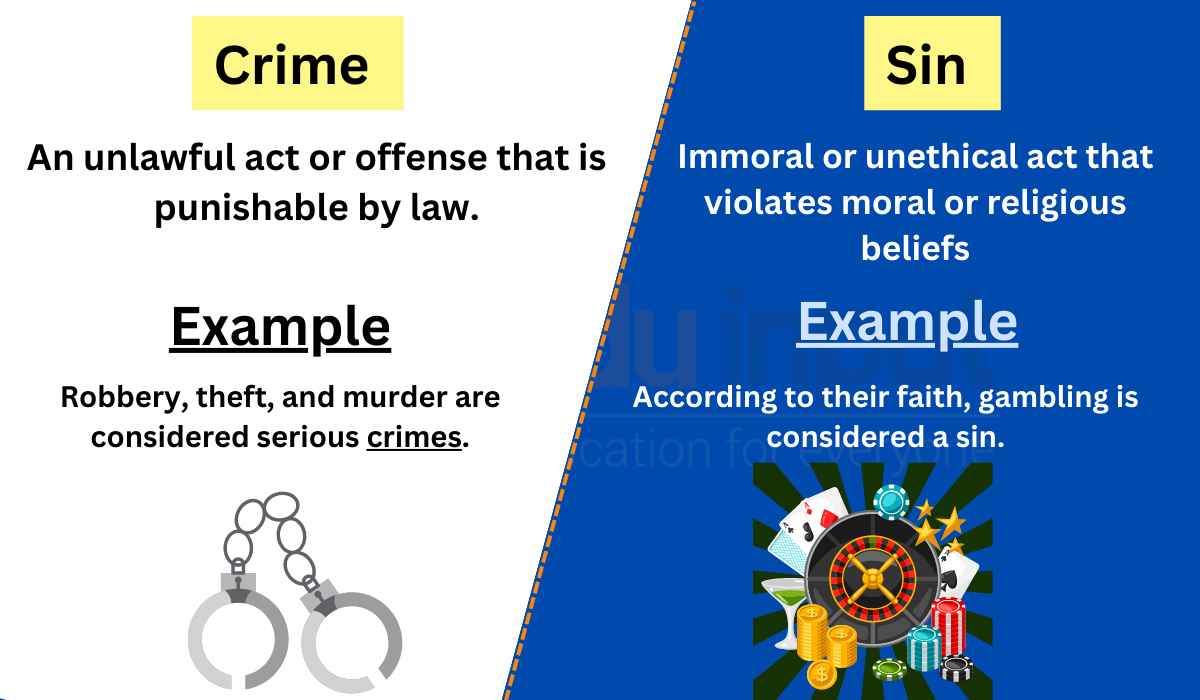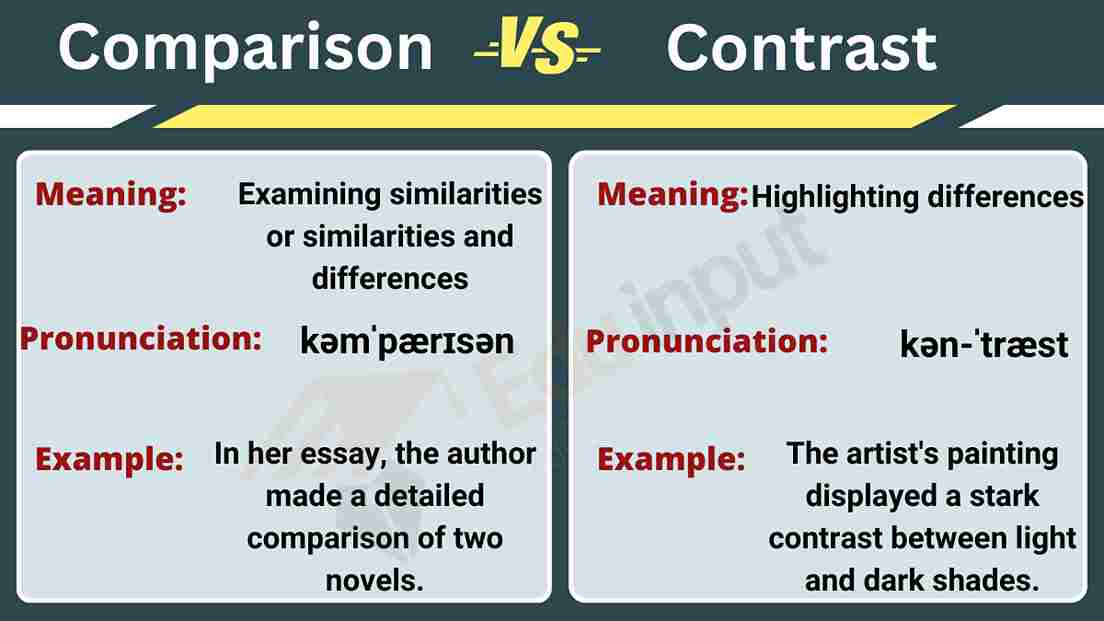Immortal vs. Immoral-Difference between and examples
In the vast tapestry of language, certain words possess striking similarities that can often lead to confusion.

Among such pairs is “immortal” and “immoral,” two terms that, despite their phonetic resemblance, encompass contrasting meanings and evoke different connotations.
This article embarks on a linguistic journey to shed light on the distinctions between “immortal” and “immoral,” exploring their definitions, contexts, and applications.
By unraveling their unique identities, we can navigate the intricate realm of language with precision and clarity.
Join us as we delve into the realms of eternal life and ethical principles, uncovering the differences between “immortal” and “immoral.”
Meanings and Examples
Immortal Definition
Definition: “Immortal” refers to something or someone that lives forever, transcending the boundaries of mortality and time.
Examples of Immortal
- Legends and myths often feature immortal beings like gods, goddesses, and mythical creatures.
- The renowned poet’s words continue to resonate with readers throughout generations, ensuring his literary legacy remains immortal.
- Some religious beliefs hold that the soul is immortal and continues to exist beyond physical death.
Immoral Definition
Definition: “Immoral” describes behavior or actions that are considered morally wrong, violating accepted principles of ethics or decency.
Examples of Immoral
- Cheating on exams is deemed immoral and goes against the values of academic integrity.
- Engaging in theft or dishonest practices is universally regarded as immoral in society.
- The book explores the consequences of immoral choices, delving into the ethical complexities of human nature.
Difference between Immortal and Immoral
| Category | Immortal | Immoral |
| Meaning | Living forever, transcending mortality and time | Behavior or actions considered morally wrong |
| Example | “Legends often feature immortal beings like gods and mythical creatures.” | “Cheating on exams is deemed immoral and goes against academic integrity.” |
| Usage | Referring to eternal life or existence | Describing actions or behavior that violate ethical principles |
| Context | Mythology, literature, religious beliefs | Ethics, morality, societal values |
Usage in a Paragraph
In the realm of mythology, tales of ancient gods and goddesses tell of their immortality, their divine essence untouched by the passage of time.
These immortal beings are revered for their enduring presence and timeless influence on human culture and belief systems.
In epic poems and folklore, they are depicted as wielding immense power and wisdom, guiding mortal lives and shaping destinies.
The concept of immortality sparks the imagination, inviting contemplation of what it means to transcend the limitations of mortal existence.
However, in the realm of ethics and morality, the notion of immorality arises when individuals deviate from accepted principles of right and wrong.
Acts such as lying, stealing, or intentionally causing harm to others are universally condemned as immoral, breaching the boundaries of ethical conduct.
Society establishes standards and norms to guide behavior, seeking to maintain fairness, justice, and respect for one another.
The exploration of morality and the consequences of immoral choices form the cornerstone of philosophical debates and literary works that delve into the complexities of human nature.
While “immortal” and “immoral” may sound alike, their meanings diverge greatly, representing distinct concepts within the realms of eternal existence and ethical behavior.
Understanding the nuances between these words enhances our ability to communicate effectively and accurately convey our thoughts.
By navigating the subtle differences between “immortal” and “immoral,” we navigate the vast landscape of language with clarity and precision, ensuring our words carry the intended meaning and convey our thoughts with accuracy







Leave a Reply